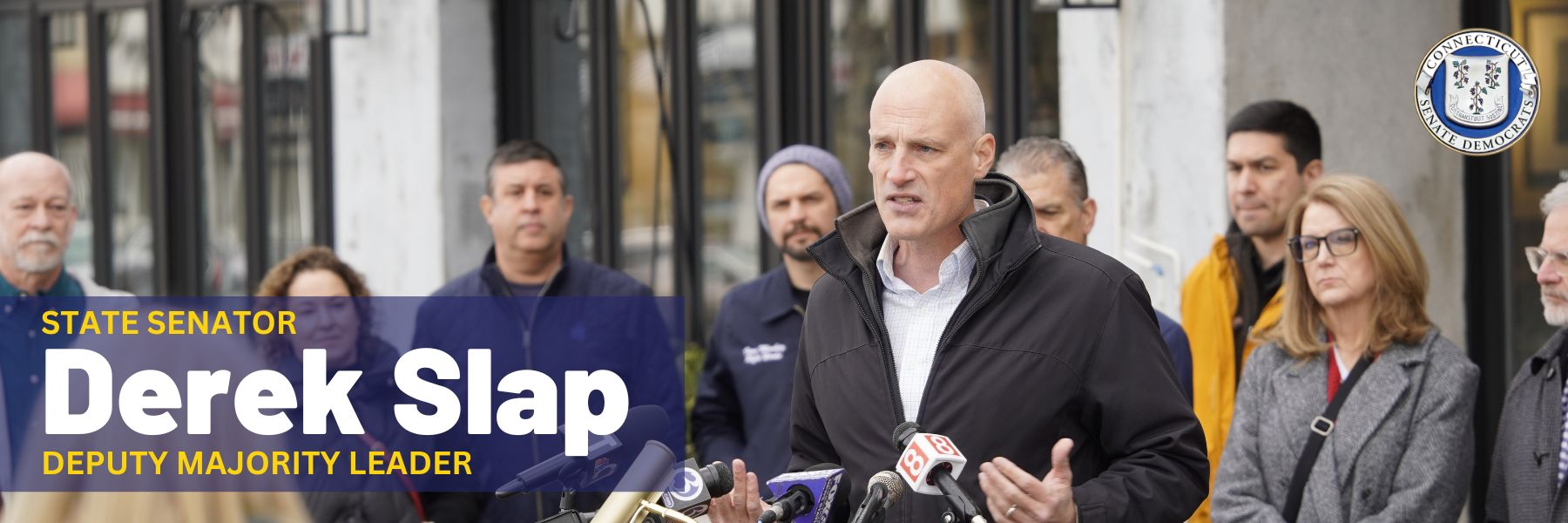West Hartford State Delegation: New Budget Expected to Deliver Additional $7M to Town
In the final days of the 2025 legislative session, the West Hartford Delegation, State Senator Derek Slap and State Representatives Jillian Gilchrest, Tammy Exum, Kate Farrar, James Sánchez and Bobby Gibson, gave final approval to a budget that provides an additional nearly $4 million in municipal aid for West Hartford, and could provide $3 million more in special education reimbursements.
“West Hartford has some of the greatest schools and services in Connecticut, and the new state budget will help ensure that they can be maintained without breaking the bank,” said the delegation in a joint statement. “We regularly hear from residents that they love living in West Hartford, but they’re concerned about affordability. We get it. West Hartford is now set to receive one of the largest increases to special education funding among all the municipalities in the state. The additional investments help students, educators, and of course taxpayers.”
West Hartford Aid – By the Numbers:
The state budget provides an additional total increase of $3,723,174 in state funding for West Hartford over the next two years, including an additional $314,782 in each FY 26 and FY 27 for the newly developed Estimated Special Education and Expansion Development (SEED) Grant.
The town will receive:
-$25,567,128 in Education Cost Sharing (ECS), a 1.92% increase from the previous budget
-$6,691,291 each year in motor vehicle reimbursement rates, an increase of 13.91%. In 2022 legislators passed a cap on the amount that a municipality can levy a motor vehicle tax, and the state provides a reimbursement for a portion of that lost revenue.
-$921,373 in each year for Town Aid Road (TAR), a 33.33% increase from the previous budget
-$805,784 in Municipal Grants-in-Aid, no change from the previous budget
-$677,699 in Local Capital Improvements (LoCIP), no change from the previous budget
-An additional $400,000 each year from the Supplemental Revenue Sharing Grant
-$155,785 in Payment in Lieu of Taxes (PILOT) in each year of the budget
-$27,820 in each year from the Mashantucket Pequot & Mohegan Fund Grant, no change from the previous budget
Earlier this session, the West Hartford delegation worked with their colleagues and the Governor to secure an immediate, additional $40 million allocation for special education reimbursement costs for municipalities for the current fiscal year.
At the end of each school year, municipalities can request a reimbursement from the state to cover the additional, unpredictable special education costs incurred throughout the year. Of the additional $40 million allocated for the current fiscal year, West Hartford was approved for over $1.5 million in excess cost reimbursement.
This budget allocates an additional $40 million in FY 26 and FY 27 for special education reimbursement costs. Considering West Hartford’s significant special education programming and based upon estimates from previous allocations, local taxpayers could expect another $3 million in relief.
“I want to thank our delegation for their hard work and advocacy throughout the budget process. The aid provided to West Hartford will serve our residents well, supporting vital services and helping us invest in the future of our community,” said Mayor Shari Cantor. “I am especially grateful for the state’s commitment to special education funding. These resources will go a long way in supporting our students, families, and teachers, ensuring that every child has the opportunity to succeed.”
“We are grateful for the leadership of Mayor Cantor, the entire town council, and the board of education,” said the West Hartford delegation. “Their partnership is critical as we coordinate priorities and deliver much-deserved resources to our special town.”
Investing in Connecticut’s Future
The budget also invests in early childhood education, targeted tax relief and more while remaining under the spending cap and projects state surpluses.
-A $250 tax refund for lower-income working families Earned Income Tax Credit program, which will benefit as many as 195,000 households
-Up to $300 million into a newly created fund for birth to five early childhood education to create additional slots, cap costs for families and pay educators more
-Projected state surpluses and continued investment in the state’s Rainy Day Fund
-Investing $76 million in nonprofits in the second year of the budget to support worker wages
-Tax credits supporting refundable personal income tax credits for home daycare owners
-Fully funding Medicaid, with more than $400 million in increased funding to support the program 900,000 Connecticut residents rely on
-Investing $7 million in Connecticut Foodshare, helping feed hungry Connecticut families
-Investing $3 million in heating assistance as federal programs may see funding reductions







